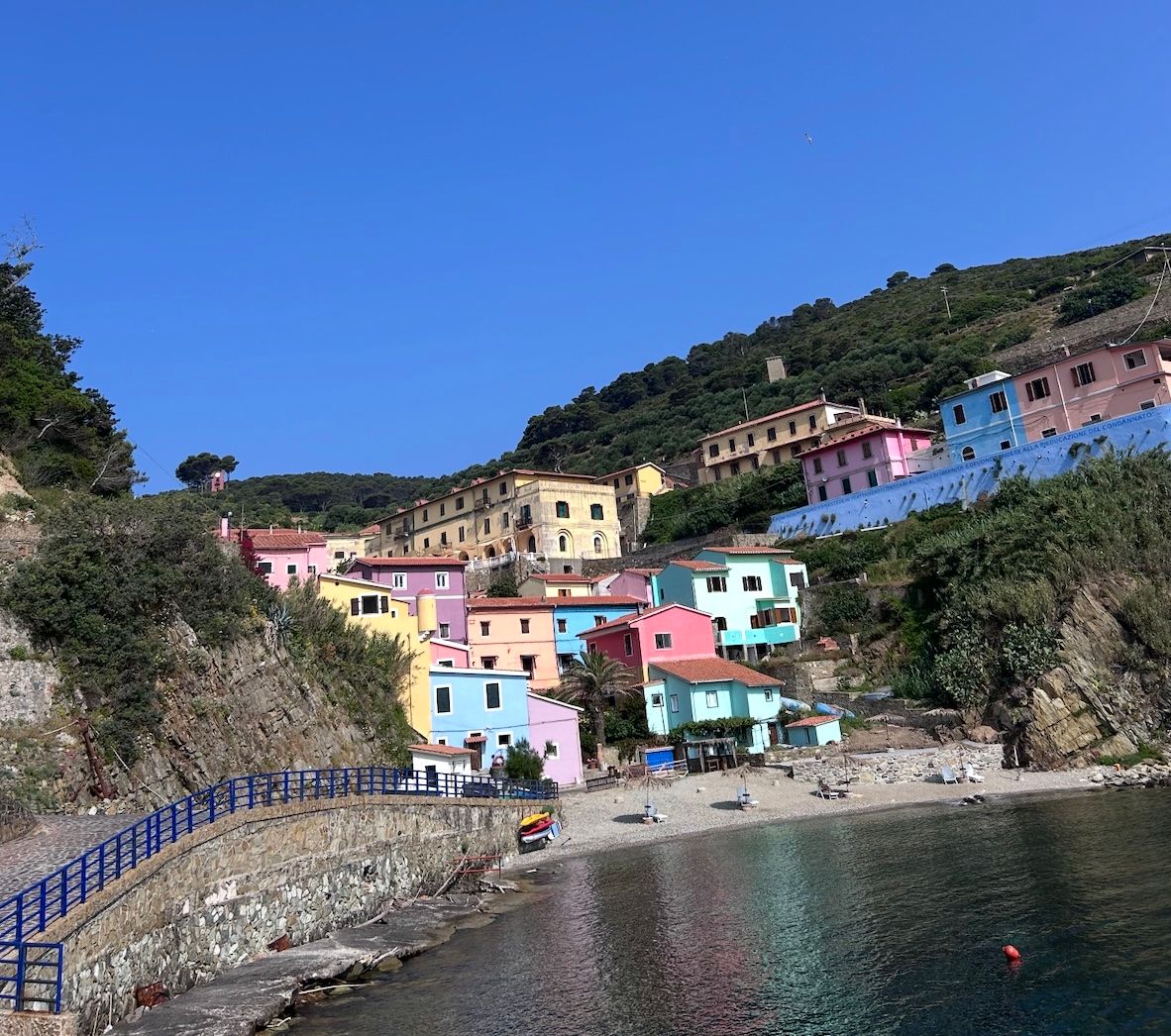On June 12 2025, on the wind-swept island of Gorgona off the Tuscan coast, Lamberto Frescobaldi uncorked the first bottle of Gorgona 2024. As has been tradition since the project’s inception, the president of Marchesi Frescobaldi marked the occasion with quiet symbolism. This wasn’t just a vintage release - it was a moment that encapsulated over a decade of social reintegration through viticulture.
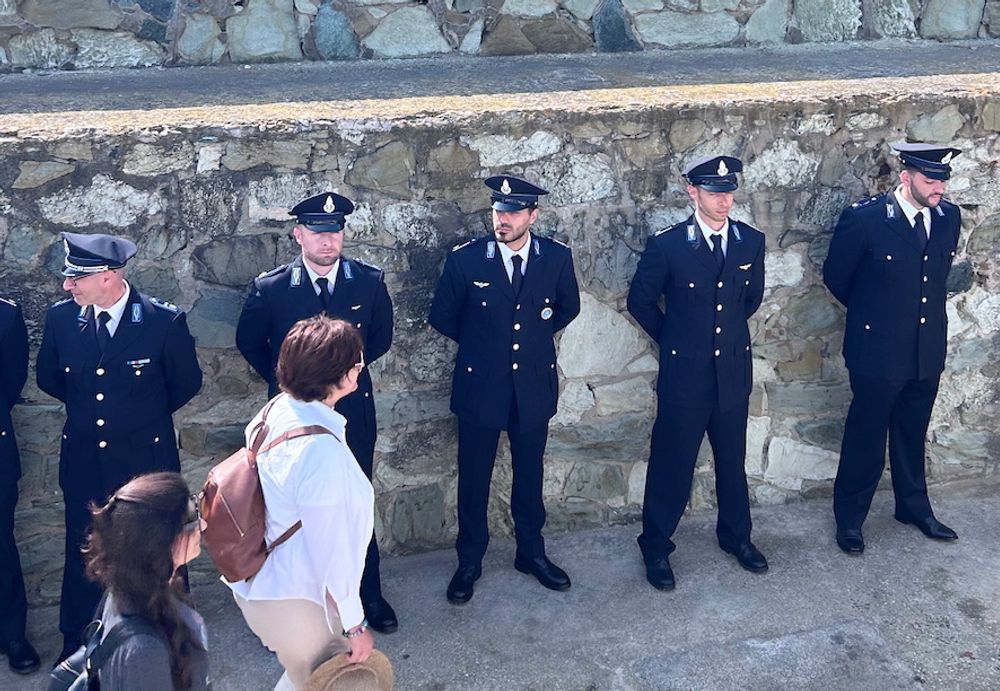
A rather unsettling welcome party at the Gorgona prison
Born in 2012 through a partnership between Marchesi Frescobaldi and the Gorgona Penal Institute, Gorgona is the result of a unique and powerful collaboration. The wine is produced by inmates serving the final part of their sentence on the island, working side-by-side with Frescobaldi’s agronomists and oenologists.
What began as a small pilot programme is now entering its thirteenth vintage and remains one of the most progressive examples in the wine world of how social responsibility can integrate seamlessly with premium quality production.
Nicolò d’Afflitto, chief oenologist at Marchesi Frescobaldi, says: “The objective is to give a message to the people. They drink this bottle, and they understand that it's not an alcoholic solution. Can you smell also the human disaster? If you can smell on the bottle the human disaster, my goal is that.”
Poignant words to hear while standing on the balcony of what, to the untrained eye, appears to be a jewel in the Tuscan Archipelago. Gorgona, Europe’s last remaining penal colony, opens its gates to journalists and other guests only once a year, and we were invited to experience this rare and extraordinary occasion.
The island itself, rich in biodiversity and wrapped in sea air, plays a central role in shaping the wine’s character - and its message. The original one-hectare vineyard was restored by the inmates themselves. Today, it spans 2.3 hectares, with Vermentino and Ansonica vines planted in iron-rich soils on sea-facing slopes.
A taste of the island
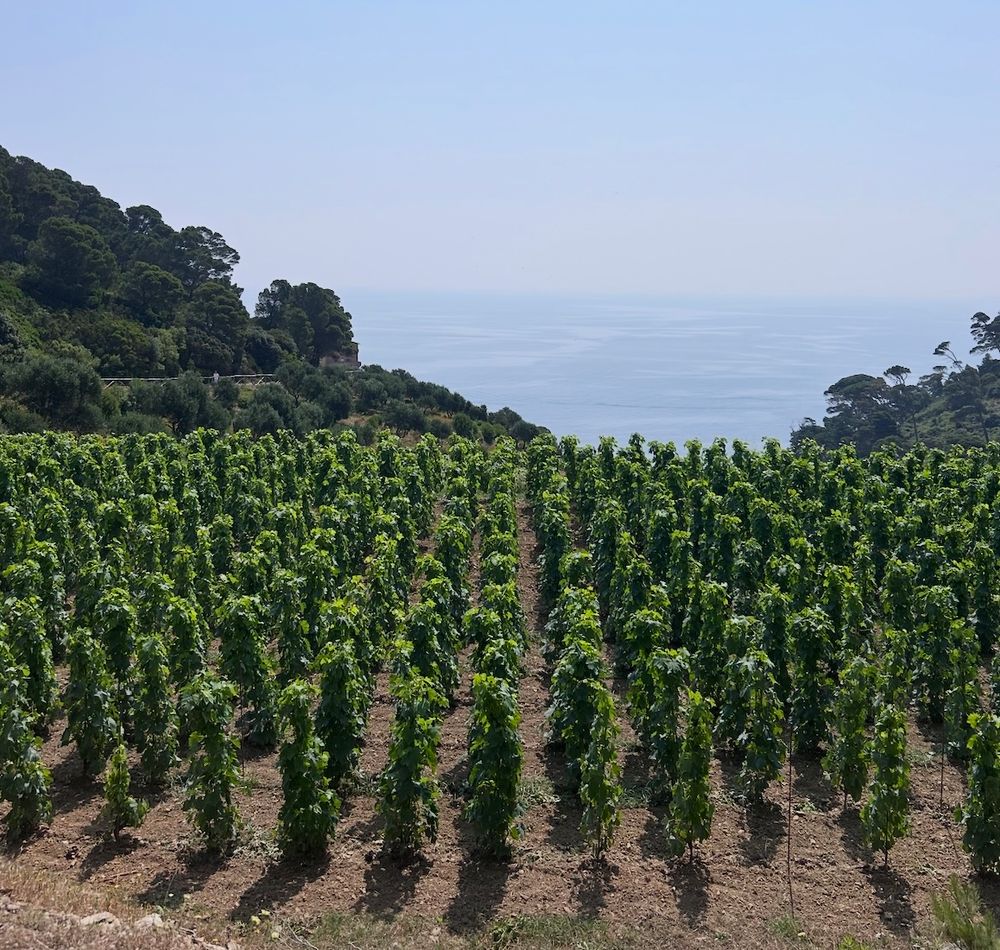
The island of Gorgona off the Tuscan coast is ideally located for vine growing
The 2024 vintage tells a story shaped by climate and time. Following an unusually warm winter and a rainy spring, cooler temperatures in September delayed harvest. Vermentino was picked in the second week of September; Ansonica followed in mid-October. The result is a wine with expressive complexity and maritime freshness.
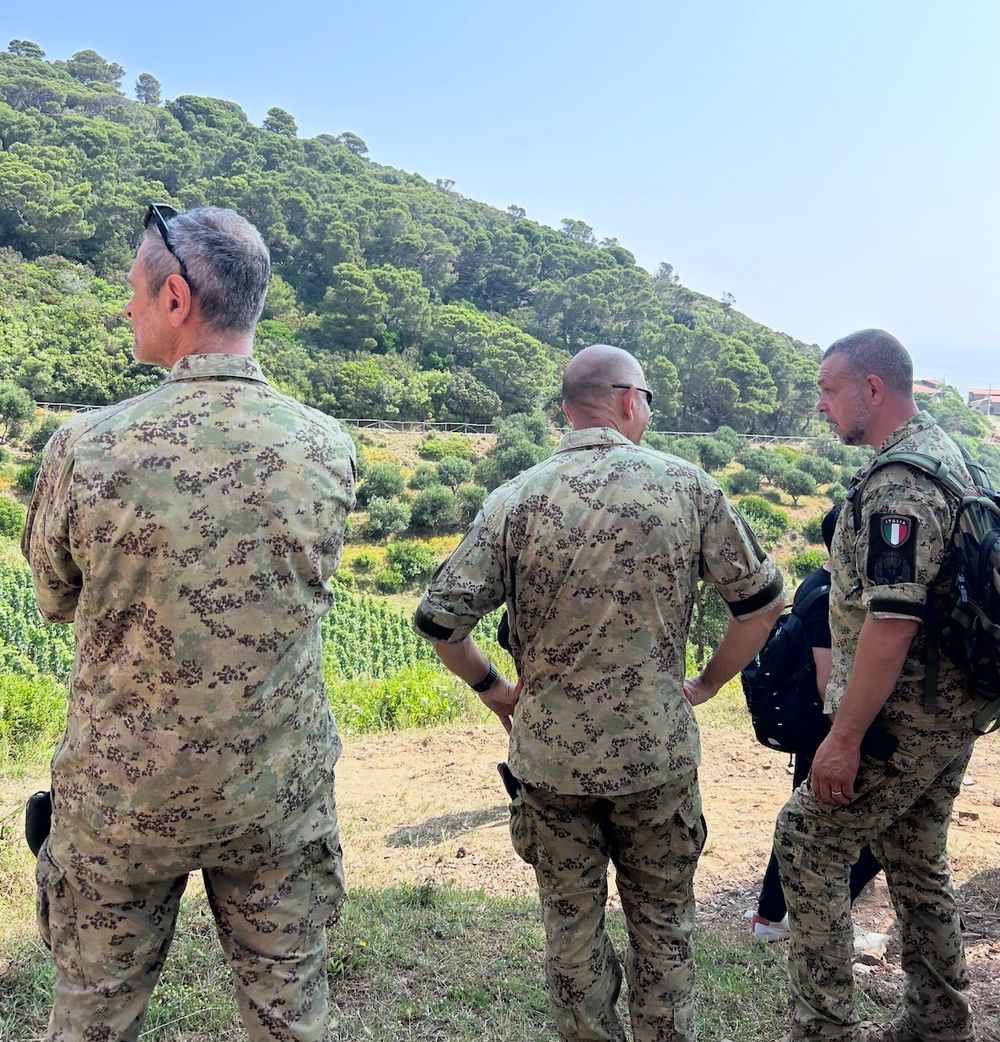
Not your average vineyard management team
In the glass, Gorgona 2024 shines with a bright yellow hue. Packed with Mediterranean herbs and a bold salinity from the nearby sea. Rosemary, sage, lifted by notes of bergamot, citron, and ripe tropical fruit. On the palate, it’s savoury, fresh, and persistent on the finish.
Only 9,000 bottles are produced each year - scarce, yes, but never positioned as a novelty. Each release is judged by its quality first and foremost, making Gorgona as much a serious wine as a symbol of purpose. There is also a small amount of red wine produced from Sangiovese, these numbers are even fewer, less than a thousand bottles made.
Symbolism in design
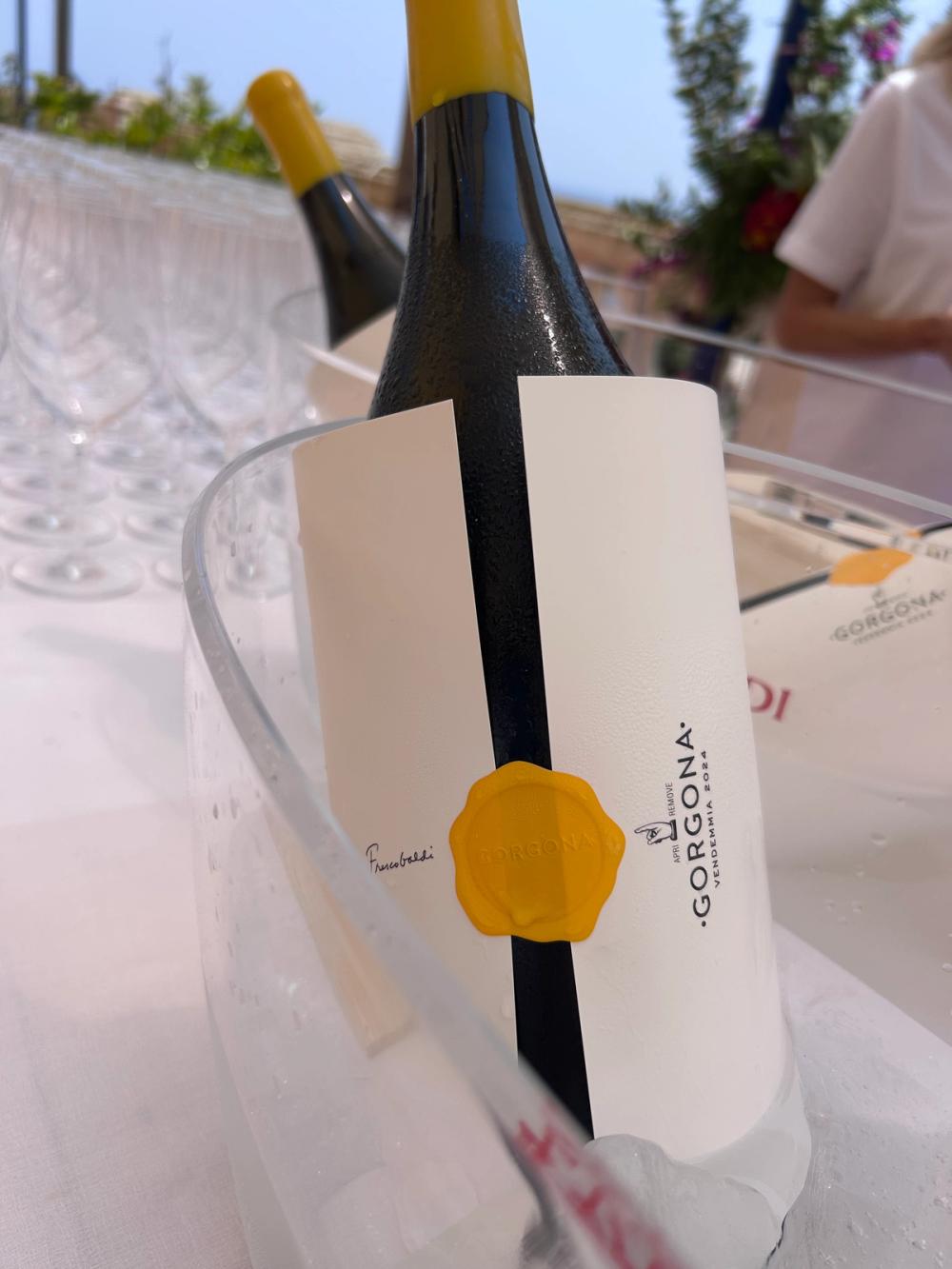
The beautifully designed Gorgona 2024 bottle by Simonetta Doni
For the 2024 vintage, the label—designed by Simonetta Doni features butterflies, in tribute to the 50 species native to the Tuscan archipelago. They are visual metaphors for transformation, biodiversity, and balance: key themes of both the island’s ecosystem and the project itself.
The collaboration with Doni reflects the same values of artistic care and social purpose. The result is a label that is not only beautiful, but deeply connected to the narrative in every bottle.
Structured rehabilitation with lasting impact
The Gorgona initiative is anchored in vocational training, dignity of work, and long-term support. Inmates earn a regulated salary, gain employable skills in viticulture, and take part in every step of the winemaking process from vineyard to cellar (except taste). In some cases, participants have continued working with Marchesi Frescobaldi following release.
Prison warden Giuseppe Renna believes the work between the prisoners and the Frescobaldi group is invaluable: “The inmates here work in a place that reproduces exactly the places in a free world. They feel part of a community. And they feel responsible. And the same importance is to acquire skills and competences that he can use once he goes in a free world.”
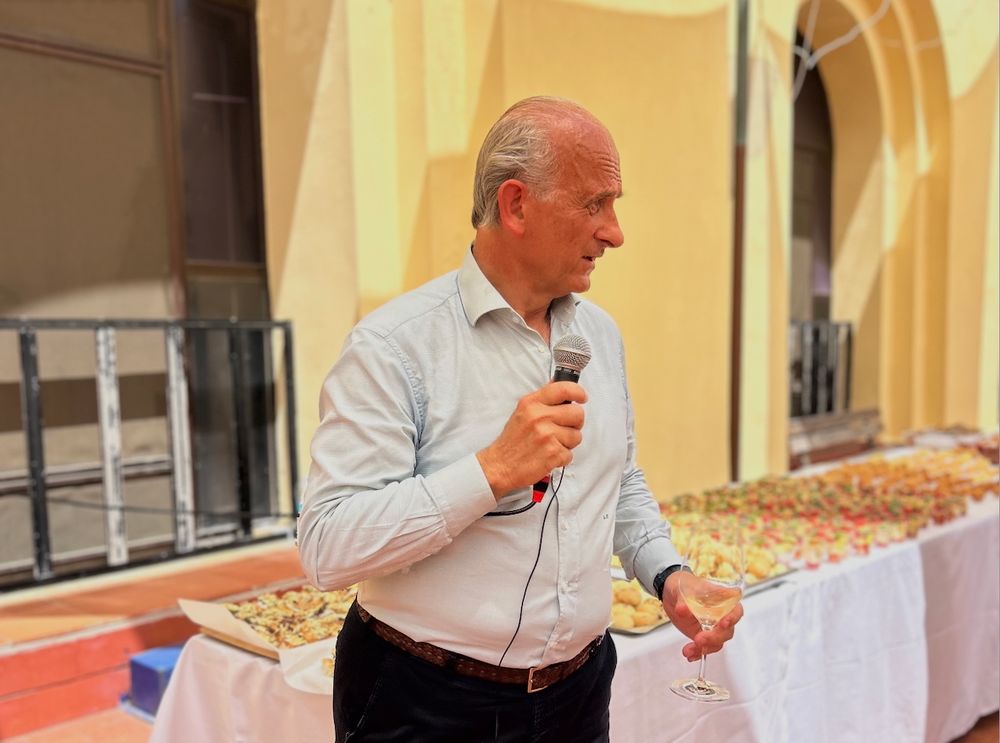
Lamberto Frescobaldi talking at the launch of Gorgona 2024
Importantly, this is not a publicity campaign. It’ s a structured, long-term initiative that aligns with Frescobaldi’s philosophy of sustainable viticulture and social investment. In 2014, the family signed a 15-year agreement with Italy’s Ministry of Justice to secure the future of the programme. Now that program looks set to continue at least until 2050, a legacy initiative indeed.
Speaking to some of the prisoners it was clear this was more than work tending the vines. “I just love the job, I just love the work” said one inmate who hopes to work for Frescobaldi when released.
Trade and hospitality engagement
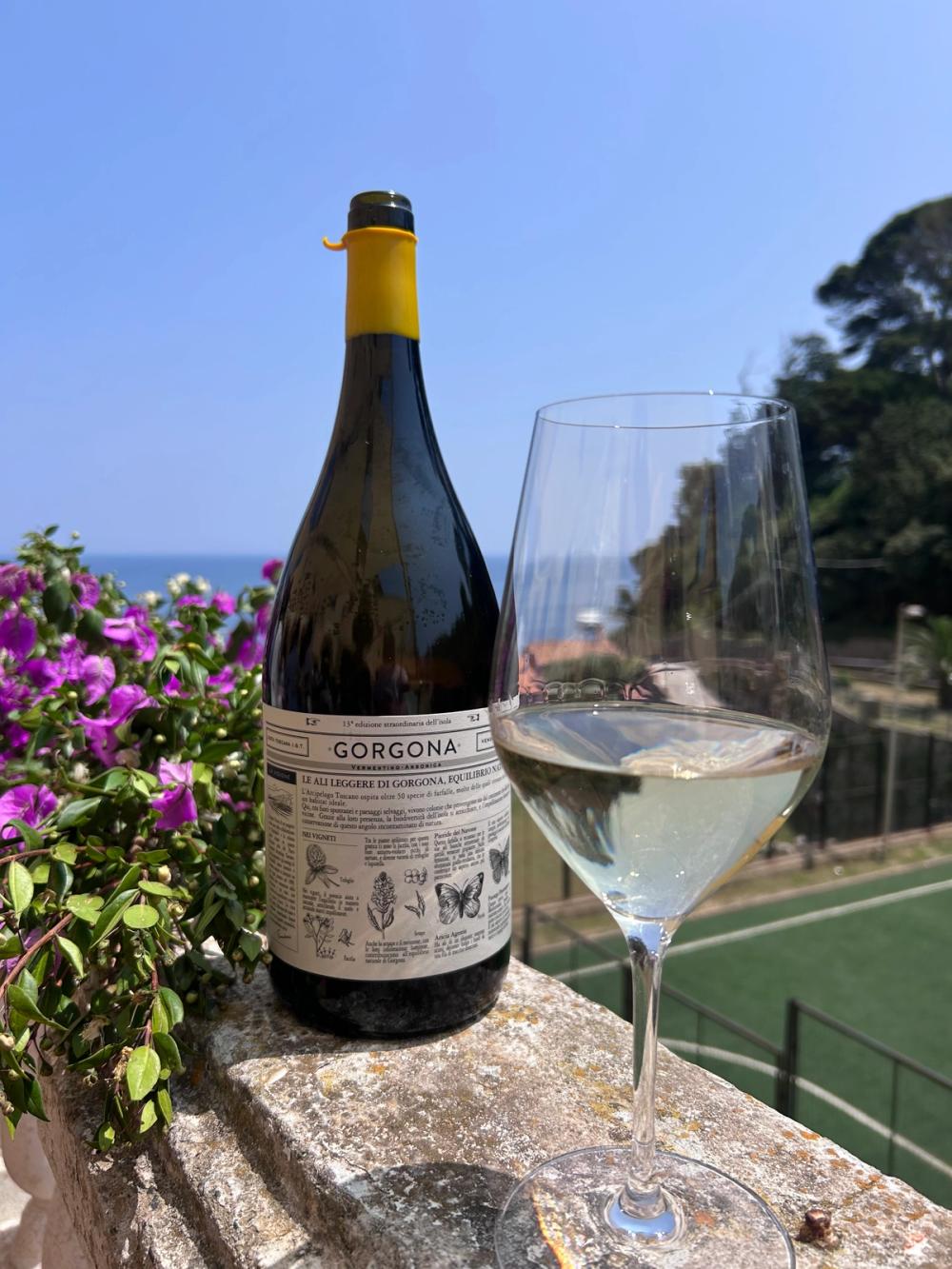
In the years since the project came about it has drawn quiet champions to the cause and the wine has also been embraced by top sommeliers and independent merchants who see it as more than a talking point.
From a trade perspective, Gorgona is an example of how producers can create authentic, measurable social impact without compromising quality (with reoffending rates of those released less than one percent). With rising consumer interest in ethical production and environmental responsibility, wines like Gorgona demonstrate that purpose and provenance can co-exist—and elevate each other.
Looking ahead
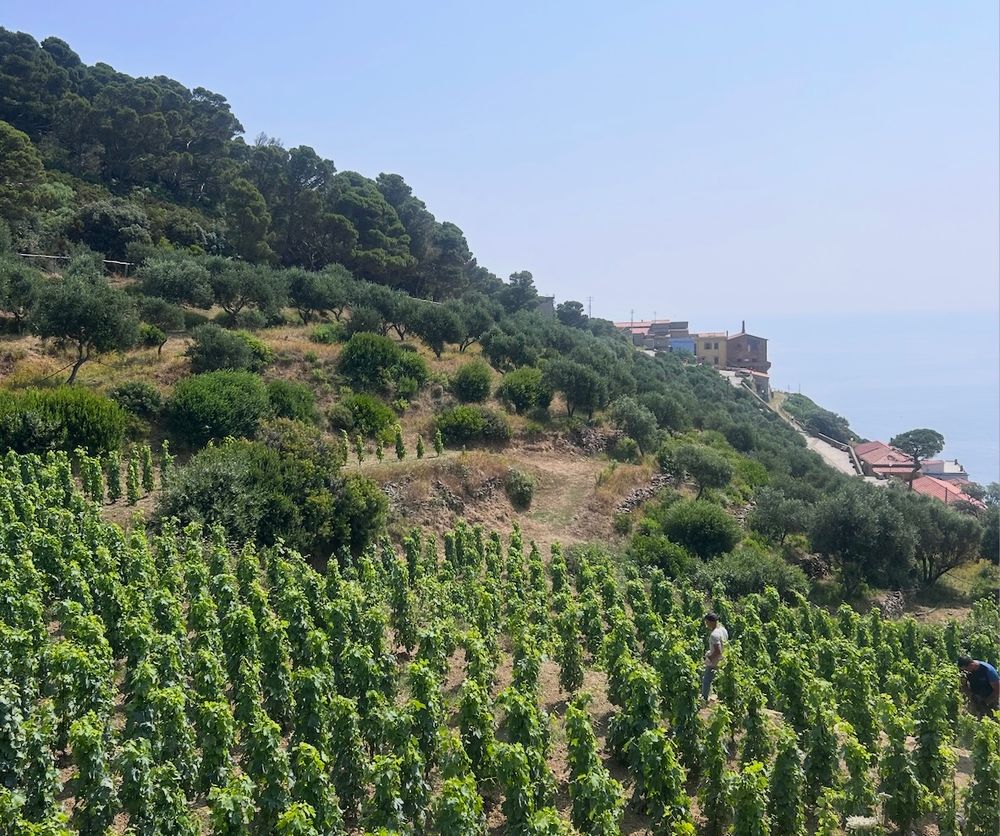
The future of Gorgona appears as focused as its past has been intentional. Marchesi Frescobaldi remains committed to the long-term vision, expanding the scope of viticultural training and deepening partnerships. They plan to expand the project further in the years to come, growing opportunities for more inmates to take part in the initiative.
As the 2024 vintage enters the market, it brings with it not only the freshness of sea breezes and sunlit vines, but a powerful reminder: wine can change lives. It can be a trade, a tradition, and a tool for reinvention. And sometimes, all three at once.
In the words of president Lamberto Frescobaldi: “This wine is kept and sent all around the world, inside that bottle is the essence of the land, people, sufferance and hope.”
* Gorgona is distributed in the UK by Enotria&Coe.
